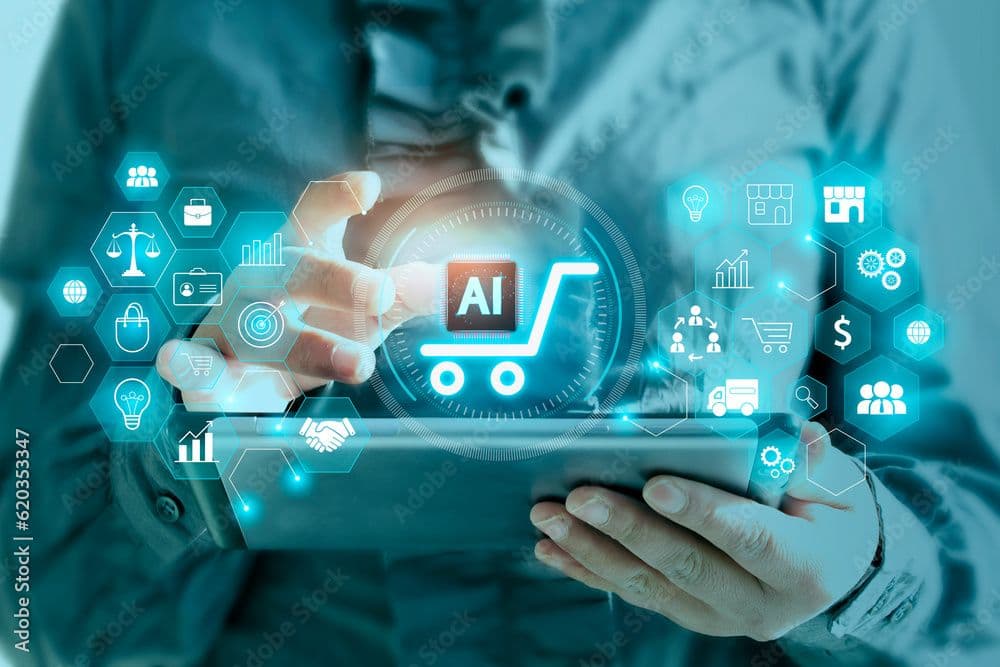AI in Entertainment

AI in Entertainment: From Gaming to Film Creation
Artificial Intelligence (AI) is transforming the entertainment industry, revolutionizing how content is created, consumed, and interacted with. AI's capabilities extend far beyond automation and basic task completion—it has begun to play a significant role in enhancing creativity, improving user experiences, and even shaping the future of entertainment mediums like gaming and filmmaking. In gaming, AI algorithms are used to generate dynamic environments, create responsive characters, and enable non-playable characters (NPCs) to interact with players in realistic ways. Through procedural generation and advanced AI-powered mechanics, game worlds are becoming more expansive and immersive. Similarly, in film creation, AI tools are being used for everything from scriptwriting to post-production, allowing filmmakers to explore new creative possibilities and streamline production processes. As AI continues to develop, its influence on entertainment is expected to grow, bringing about a new era of interactive, personalized, and innovative experiences.
In the world of gaming, AI has already had a profound impact on both game development and gameplay. AI algorithms are often used to enhance NPC behavior, making characters more intelligent and reactive to player actions. For example, enemies in games can use AI to analyze a player’s tactics and adapt their strategies accordingly, making the gaming experience more challenging and rewarding. AI is also used to generate procedural content, such as maps, levels, and even storylines, ensuring that no two gaming sessions are alike. This leads to more dynamic and replayable experiences, as the game environment can change based on player actions and choices. Additionally, AI-driven systems in virtual reality (VR) and augmented reality (AR) have the potential to create highly interactive, immersive environments, further blurring the lines between reality and digital entertainment. As AI continues to advance, it is likely that games will become even more personalized, adapting to individual preferences and skill levels, providing a tailor-made experience for every player.
In film creation, AI is making waves by assisting in multiple stages of production. In the pre-production phase, AI can help in scriptwriting by analyzing existing films, understanding plot structures, and even suggesting narrative ideas based on trends and audience preferences. AI-powered tools can generate story arcs, character developments, and dialogue suggestions, allowing writers and filmmakers to experiment with new concepts. During production, AI is increasingly being used for visual effects (VFX), where machine learning algorithms can create realistic simulations of physics, weather conditions, and even human movements. AI tools can also help with the post-production process by automating tedious tasks such as video editing, color grading, and sound design. Deep learning algorithms can be trained to recognize patterns in footage, identifying key scenes or moments that need editing, speeding up the overall production time. AI is even being used in casting decisions, analyzing actors’ previous roles and audience reactions to predict how well an actor might fit a certain role. This level of AI integration has made filmmaking more efficient, cost-effective, and accessible to a wider range of creators.
AI is also transforming the consumer experience in entertainment. Streaming platforms like Netflix, Amazon Prime, and Spotify utilize AI algorithms to recommend content based on user preferences, viewing history, and behavior patterns. These personalized recommendations make it easier for consumers to discover new shows, movies, and music that they are likely to enjoy. Additionally, AI is playing a role in interactive entertainment, where users can influence the storyline and outcome of a show or movie. Platforms like Netflix have experimented with interactive films, such as Bandersnatch, where viewers make decisions for the characters, altering the course of the narrative. This creates a more engaging and immersive experience for users, as AI helps to track choices and provide alternative paths in the storyline. Furthermore, AI is being used in live events, such as concerts and theater performances, to create dynamic, responsive environments. AI-powered lighting, sound, and visual effects adapt in real-time to performers' movements and audience reactions, creating an unparalleled interactive experience.
In conclusion, AI is reshaping the entertainment industry in profound ways, from enhancing gaming experiences to revolutionizing the filmmaking process. Through AI’s ability to analyze vast amounts of data, adapt to individual preferences, and generate creative content, the industry is becoming more personalized, immersive, and efficient. As technology continues to evolve, the potential applications of AI in entertainment will only expand, leading to new forms of storytelling, gaming, and interactive experiences that we have yet to fully imagine. AI is not just changing the way we consume entertainment; it is changing the way entertainment is created, offering endless possibilities for the future of the industry.
,